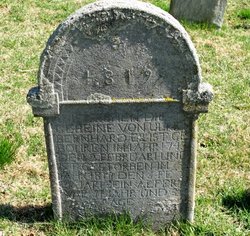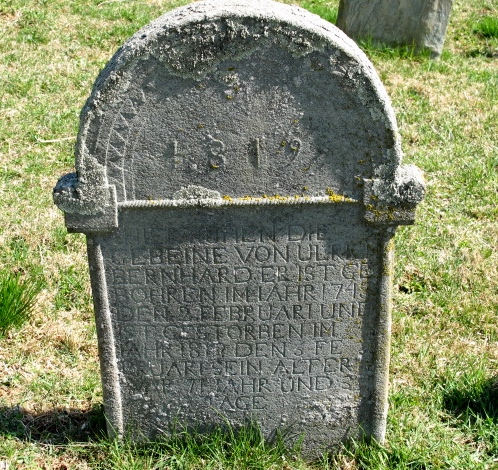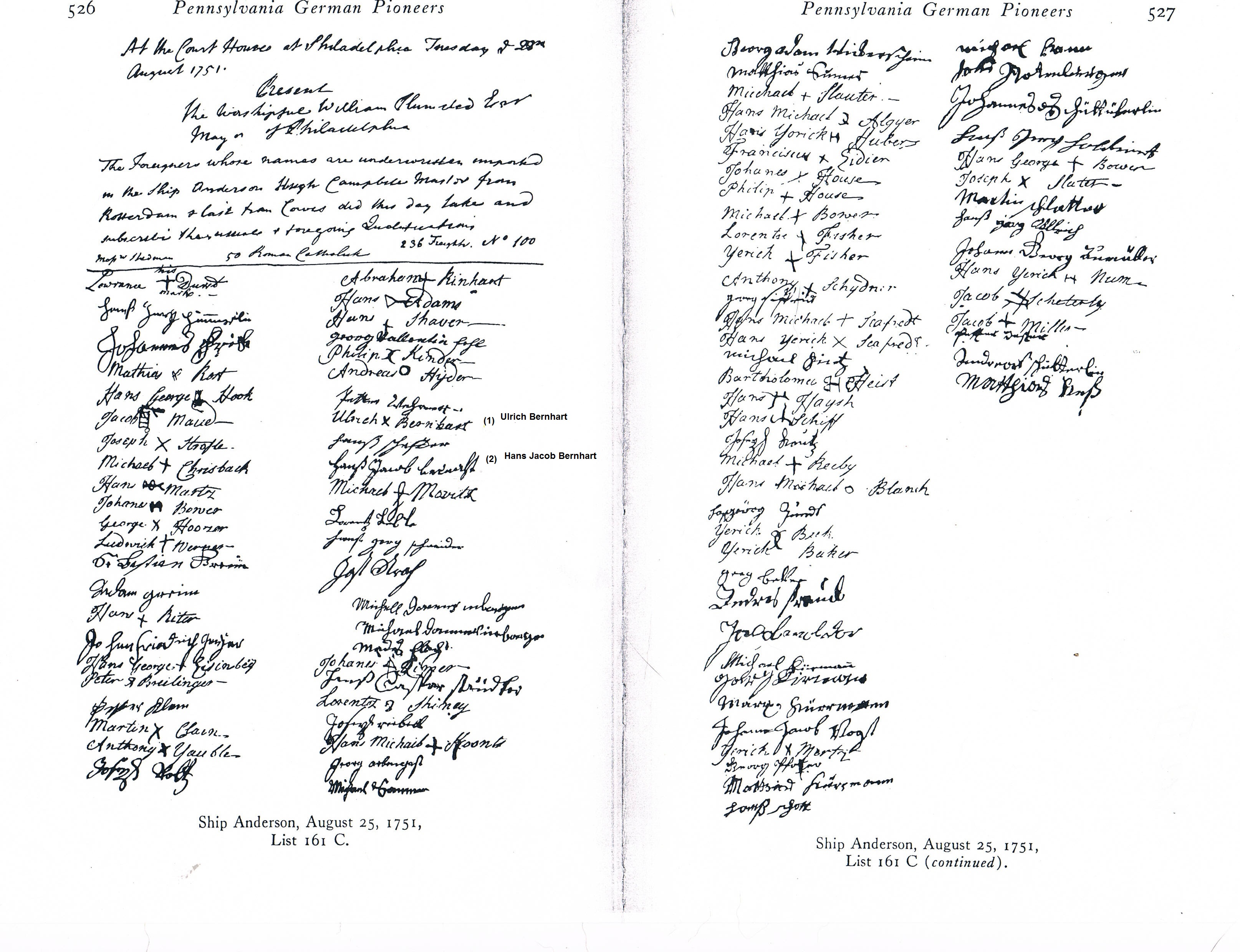The siblings were separated soon after their arrival. Although it was common for immigrants unable to pay their passage -- due upon arrival to their destination -- to bond themselves into indentured servitude as a way to "redeem" their passage fare, whether this accounts for the siblings early separation is currently unknown. In 1764, several years after the brothers' arrival, Hans placed the following personal ad in the Pennsylvania Gazette (the paper made famous thanks to Benjamin Franklin's stewardship,) seeking his long-lost brother, "Hans Jacob Bernhart is seeking brother, Ulrich, whom he has not seen since their arrival on Anderson." Although Hans's signature is shown on the required Oath of Abjuration when they both arrived in 1751, Ulrich made his mark with an "X" indicating he was too young (under 16) to sign. Ulrich went on to serve in the American Revolution and to survive the conflict. His spouse was Catharina "Catherine" Hauser, (1756-1838) whose details are still being researched. Their known heirs are:
Jacob Bernhardt, Sr. (1776 -1853)
Magdalena Bernhardt (1780-1822)
Anna Bernhardt (1786-1814)
Catherine Bernhardt (1788-1819)
Philip J. Bernhardt (1794-1867)
They were the first generation of this line born outside their homeland to become United States citizens.
Special note regarding the name variation spellings:
According to Dr. Hildagard Glass, Chair, Modern and Classical Languages and Director of German Studies at University of Houston College of Liberal Arts and Social Sciences, the name change from Bernhard to Bernhardt isn’t so significant and pointed out that language is not a static thing. She also noted the “random” nature of German names generally and the changing nature of German surname spellings as various attempts at standardization occurred over various phases of cultural development such as with the introduction of dictionaries and other organizing language aids. In truth, she explained, the “t” on the end of the name as it appears in later generations is an indicator that the name was actually pronounced Bernhardt, in German, even if spelled without the “t” on the end as it appears on his tombstone.
The siblings were separated soon after their arrival. Although it was common for immigrants unable to pay their passage -- due upon arrival to their destination -- to bond themselves into indentured servitude as a way to "redeem" their passage fare, whether this accounts for the siblings early separation is currently unknown. In 1764, several years after the brothers' arrival, Hans placed the following personal ad in the Pennsylvania Gazette (the paper made famous thanks to Benjamin Franklin's stewardship,) seeking his long-lost brother, "Hans Jacob Bernhart is seeking brother, Ulrich, whom he has not seen since their arrival on Anderson." Although Hans's signature is shown on the required Oath of Abjuration when they both arrived in 1751, Ulrich made his mark with an "X" indicating he was too young (under 16) to sign. Ulrich went on to serve in the American Revolution and to survive the conflict. His spouse was Catharina "Catherine" Hauser, (1756-1838) whose details are still being researched. Their known heirs are:
Jacob Bernhardt, Sr. (1776 -1853)
Magdalena Bernhardt (1780-1822)
Anna Bernhardt (1786-1814)
Catherine Bernhardt (1788-1819)
Philip J. Bernhardt (1794-1867)
They were the first generation of this line born outside their homeland to become United States citizens.
Special note regarding the name variation spellings:
According to Dr. Hildagard Glass, Chair, Modern and Classical Languages and Director of German Studies at University of Houston College of Liberal Arts and Social Sciences, the name change from Bernhard to Bernhardt isn’t so significant and pointed out that language is not a static thing. She also noted the “random” nature of German names generally and the changing nature of German surname spellings as various attempts at standardization occurred over various phases of cultural development such as with the introduction of dictionaries and other organizing language aids. In truth, she explained, the “t” on the end of the name as it appears in later generations is an indicator that the name was actually pronounced Bernhardt, in German, even if spelled without the “t” on the end as it appears on his tombstone.
Family Members
Advertisement
Records on Ancestry
Advertisement









